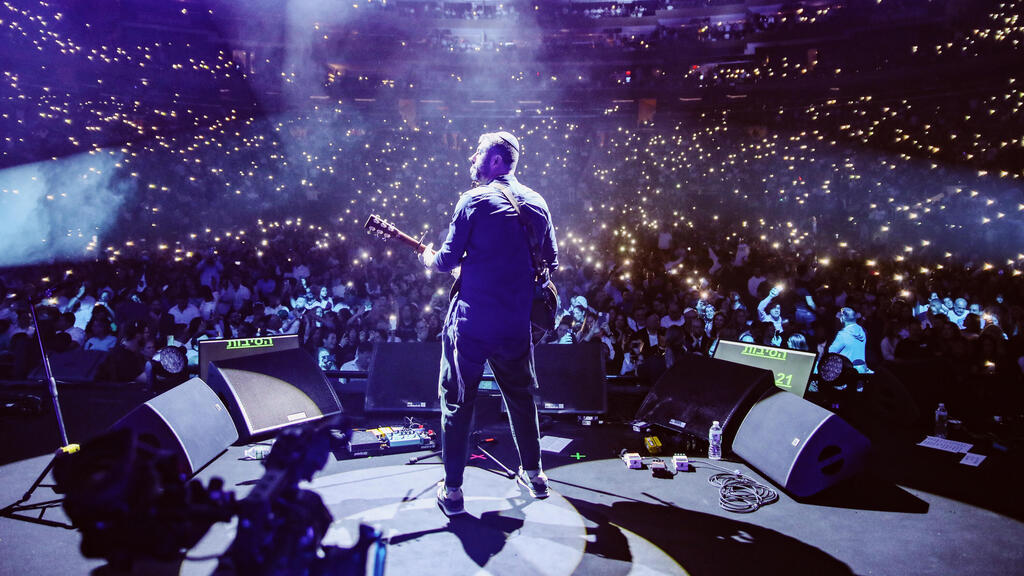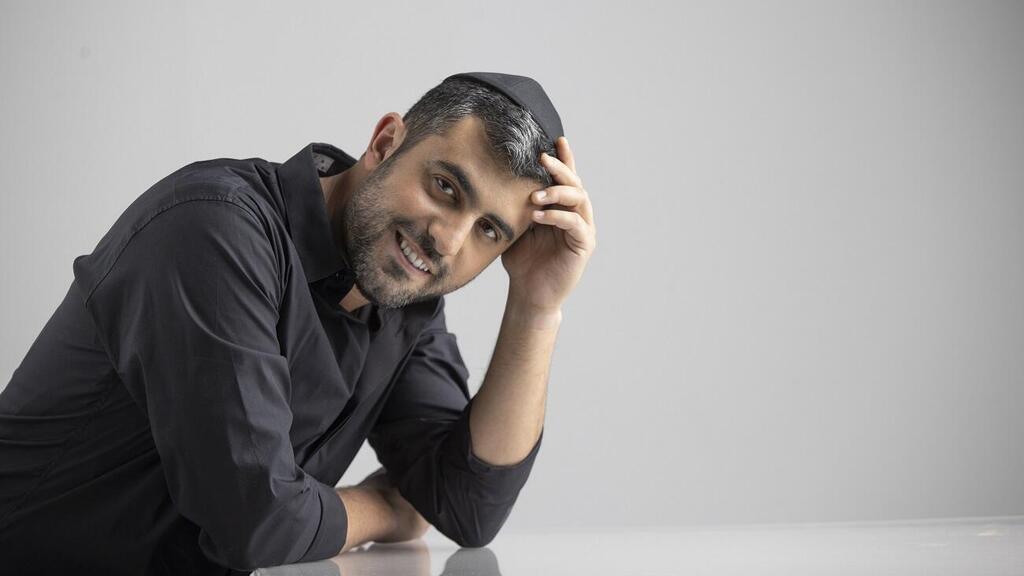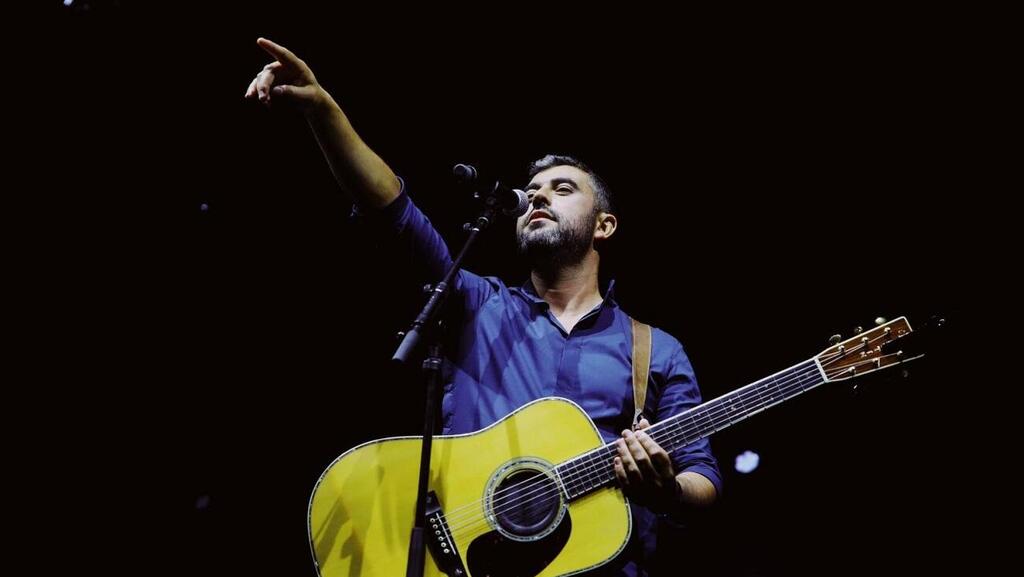Ishay Ribo performing to a sold-out Madison Square Garden
Ishay Ribo is one of Israel's most internationally successful singers. He is married and a father of five who immigrated to Israel from France when he was 8 years old and settled on the West Bank. He had a religious upbringing, studied in a yeshiva and sang in a rabbinical choir during his military service.
More stories:
"We lived in a mobile home when we first came to Israel. We did not have much but enjoyed our freedom," he says. "I remember my father, who was unemployed at the time, taking me to school in Jerusalem. We did not own a car so we would hitch a ride and he would wait for me until I finished my school day."
What would you tell 16-year-old you?
"Don't concentrate on what you don't have. I would not change a thing about my life. I turned what was missing, into an advantage. Not having studied music, allowed me to dream without having to compete with other kids at school. When I see talented people, I urge them to follow their dreams without fear and find a way to bring them to fruition. I started writing songs at 16. I would space out at school and drum on the desk."
Where does religion fit it?
"It protected me from crossing the line when faced with temptation. I played on the streets of Jerusalem but then went home to Yeshiva for the night. I know that was not what was expected of me, but it gave me the oxygen I needed."
What is your greatest fear?
"When I get a cold and lose my voice, I worry that my singing career may be over. My wife Yael calms my stress."
What is your greatest achievement?
"Being able to sing to a diverse crowd, made up of secular and religious people, young and old and even once, the chief of staff. I realized that through music I am able to reach many people."
If you had a time machine, when would you go back to?
"The establishment of the state. After everything people endured in the Holocaust, they had this revival. In films from that time, I mostly feel the experience of extreme joy. Today everything goes by too quickly. I remember getting my first Walkman, I doubt if my kids can experience something similar."
How do you deal with the rift in society, between religious and secular Israelis?
"It pains me but does not come as a surprise. I think things were silenced for a long time. As soon as each side is entrenched in their position, everyone is wrong. The solution must come from within and from the people. Not from politicians or the media. there is too much ego and money at play."
But what is most painful?
"That there is no desire for real dialogue. If things were as bad as we here, I would not be traveling around the world performing, with my band, with women."
But do you understand what these women are afraid of?
"The fact that there are women in Israel who feel like that, proves we have a problem. No one should feel threatened or sidelined in their own country and no one can declare that he or she are in power and are allowed to do anything."
Where is this all going?
"I don't believe in phrases like we are on the way to destruction. I believe in the end, this will bring a new dialogue."
What do you think you missed out on?
"If I had not become a musician, I would have been a designer. I took part in the design of our new home."
Who should ask for your forgiveness?
"I want to change the question around. Whose forgiveness should I ask for? The answer is my wife. She is always there, dedicated to our home and children and I may not always appreciate that enough. She experiences my emotional ups and downs, and my moods. This is a dynamic profession and you experience things in a powerful way but in the end, you come home, and your wife is there to greet you. It's always a rollercoaster ride, coming back from a concert. It can be a very lonely feeling. But when I come home, I do the dishes, take out the trash and change a diaper. I'm no father of the year, but it grounds me."
3 View gallery


"I do not live the life of a Rockstar". At Madison Square Garden
(Photo: Tamar Hanan)
But you sang to a sold-out crowd at Madison Square Garden recently.
"I do not live the life of a Rockstar. I do feel loved, thank God, but I distance my performing from my personal life. I don't share much and am no longer on social media. I have people who post things for me but when I saw other celebrities posting about their lives, I took a step back."
What don't you like about it?
"I saw people post about their holidays in the Maldives. They were probably paid to post stories from there but then people who cannot afford it, also want to go on such a vacation, they will use their savings and go and will not really experience anything. If you do not post, you were not really there."
What is your favorite smell?
"Freshly cut grass."
What is your guilty pleasure?
"Another slice of pizza."
What advice do your parents give you?
"My father who is religious, does not come to my concerts unless they are held in separation of men from women. But he always shows an interest and his advice is to breathe and experience the moment. My mother is a worrier and when I was younger, I would have a hard time with that. Once a friend told me I was lucky to have a mother who called every day. That put things in perspective for me."





